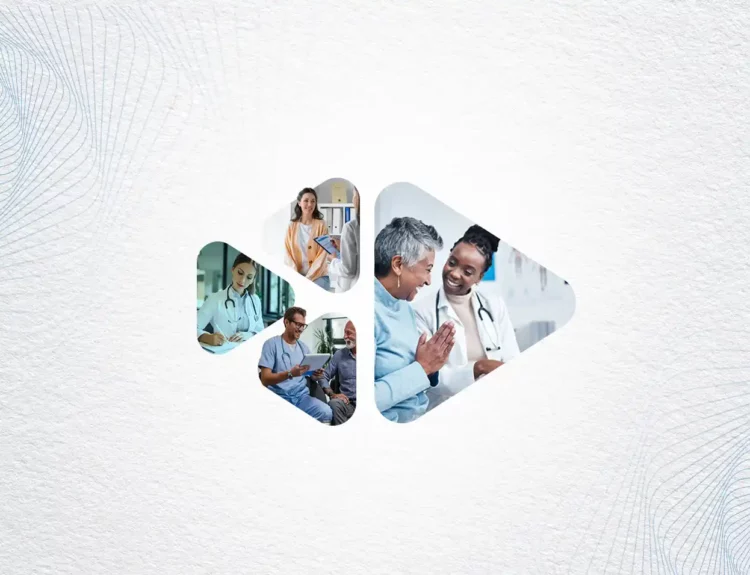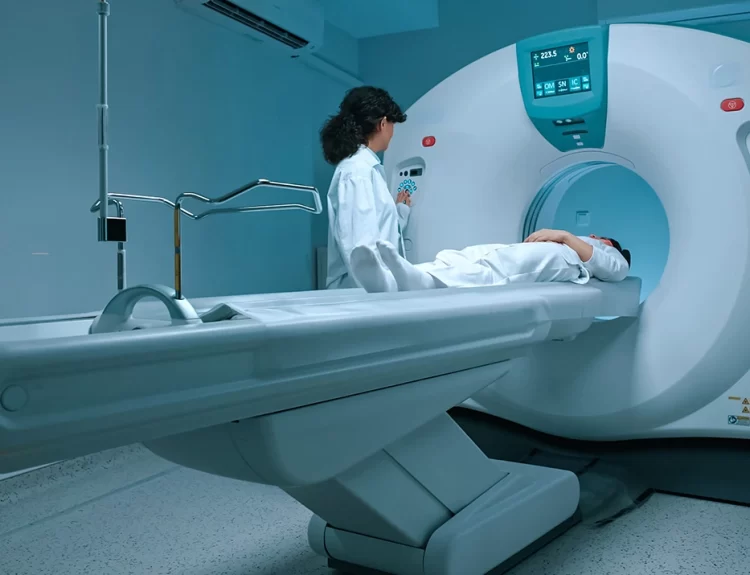Connecting with loved ones across borders, staying informed about current affairs worldwide, getting loads of opportunities for learning and exploration–there are so many ways in which social media has made our lives immeasurably better.
However, the nonstop stream of notifications, endless scrolling of curated highlight reels, and the peer pressure to stay on top of ‘what’s hot’ trends come at a cost. It can lead to low self-esteem and fear of missing out (known as FOMO among the younger generations), which can cause bouts of anxiety and depression, making social media apps a double-edged sword.
As part of our ongoing study on the interplay between digital technology and mental well-being, our recent survey involving neurologists worldwide reveals crucial insights into the impact of digital apps on mental health.
46% of Neurologists Report Patient Concerns Regarding Social Media Usage
We turn to social media every step of the way. It’s a source of connection and a bottomless well of information (and sometimes misinformation). But is it harming our mental health? Our survey with neurologists suggests it is.
Do Patients Discuss the Impact of Social Media on Mental Health?
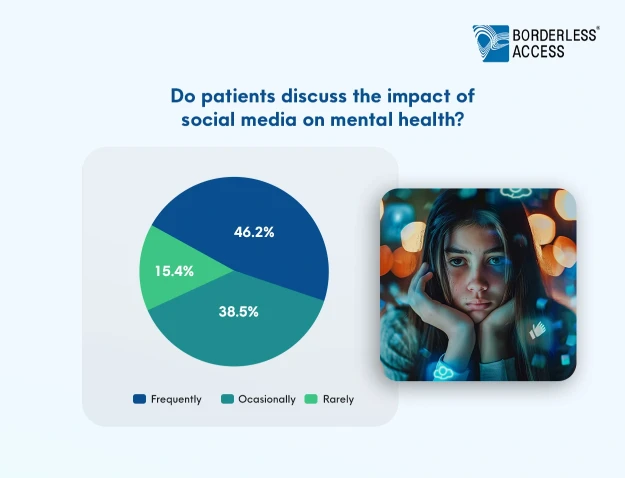
A significant number of neurologists worldwide, nearly half of them, reported that patients discuss the ill effects of rampant social media usage during consultations. This indicates that the pervasive presence of digital technology in our daily lives is prompting more individuals to question its impact on their mental health. Patients are no longer passively accepting the adverse effects. Instead, they are proactively addressing them with the help of their healthcare providers.
Neurologists are now tasked with treating traditional ailments alongside guiding their patients through the complexities of managing their lives in this digitally dominant era.
How Are Neurologists Underlining the Impact of Social Media on Mental Health
We have garnered another valuable insight from this global study. Neurologists, who are otherwise focused on the biological aspects of brain health, now recognize how digital technologies influence our mental well-being.
Are Neurologists Recommending ‘Digital Detox’ to Their Patients?
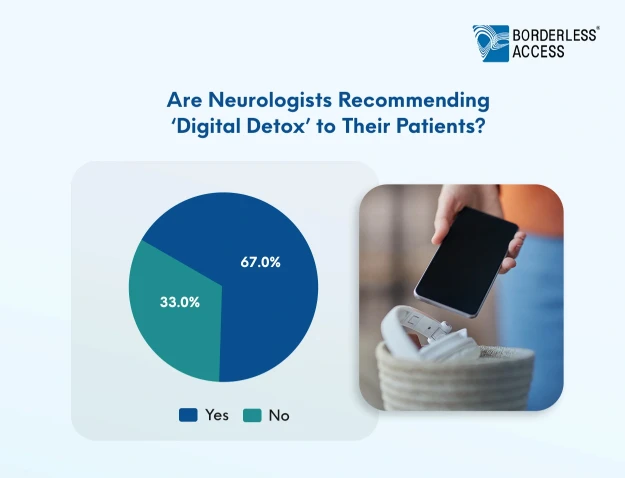
A whopping 67% of neurologists reported recommending ‘digital detox’ to patients experiencing adverse mental health effects. According to them, a ‘digital detox’ doesn’t have to be a permanent exile from the online world. It’s about taking a conscious break to reconnect with yourself and the world. This could mean spending time outdoors, practicing mindfulness, engaging in creative pursuits, or prioritizing face-to-face interactions with loved ones.
Is ‘Digital Detox’ the Only Way Out?
Although a majority of neurologists strongly recommend ‘digital detox’ as a primary solution, they are also considering another crucial approach to help patients deal with mental health issues stemming from unregulated social media usage – ‘Patient Education Programs.’
How Neurologists Plan to Promote ‘Patient Education’ on Technology & Mental Health
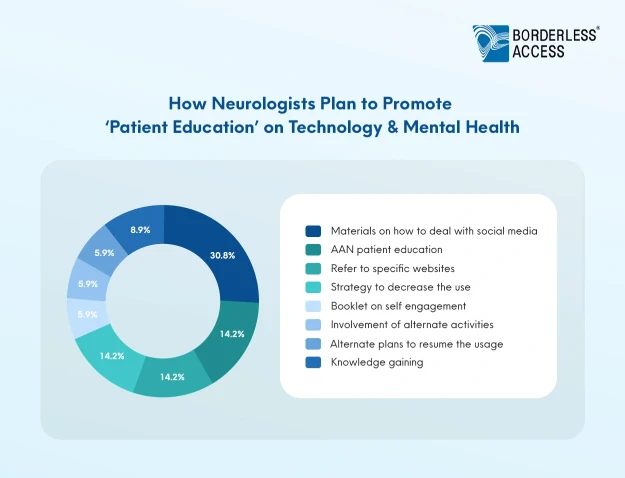
Interestingly, 30.8% of neurologists believe that providing patients with educational materials on navigating social media responsibly would be highly beneficial.
The educational materials would include crucial information like:
- Practicing Mindful Consumption: Anyone who feels that social media negatively impacts their mental health needs to critically evaluate how they usually engage with social media. Mindless scrolling is an absolute no-no. Reading encouraging and meaningful content helps maintain a ‘non-toxic relationship’ with social platforms.
- Curating Social Media Feed: Social media platforms often present an idealized version of life, which can lead to unrealistic comparisons and negative self-perception. You can create a more positive online environment by consciously choosing to follow accounts that inspire and uplift you.
- Carving Out Tech-Free Timetables: Everyone should maintain a timetable and add some spaces where technology is off-limits. This allows them to focus on relaxation and fosters a deeper connection with the real world.
- Prioritizing Sleep: The blue light emitted by electronic devices disrupts sleep patterns. Social media users are suggested to power down electronics at least an hour before bedtime to ensure restful sleep, which is crucial for maintaining mental health.
By adopting these healthy habits for using social media, patients can develop a more sustainable and balanced approach to technology, fostering a healthier relationship with the online world and their own well-being, much like trading endless scrolls for mindful conversations.
Need of the Hour: A Future Where Digital Habits Support Mental Health
Our global survey unveils a startling link between digital apps and mental health. This calls for immediate action to create a healthier online environment for everyone.
The conversation between patients and neurologists has just begun. While ‘digital detoxes’ offer a temporary reprieve, long-term solutions require collaboration. Can we design technology that complements mental well-being rather than competes with it? How can neurologists effectively guide patients toward healthier digital habits? Further research and open dialogue between these stakeholders are essential to navigate the complex relationship between the digital world and our brains.
Let’s turn the conversation into action and lay the foundation for a future where technology empowers, not hinders, mental health.




